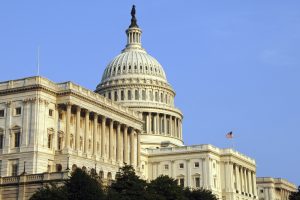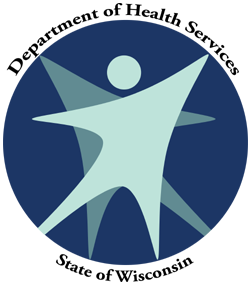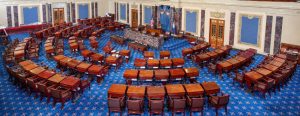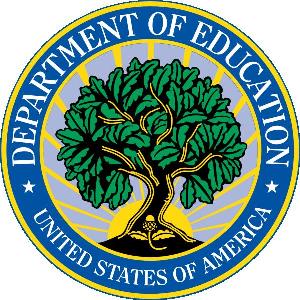by Dan Rossmiller | Sep 2, 2020 | Federal Budget, Federal Issue, Legislative Update Blog, National Issue
 The President signed an executive order that was issued on August 8, 2020 that allows employers to participate in a voluntary program to defer withholding of the payroll tax attributable to social security (6.2%) on wages paid out between September 1 and December 31, 2020.
The President signed an executive order that was issued on August 8, 2020 that allows employers to participate in a voluntary program to defer withholding of the payroll tax attributable to social security (6.2%) on wages paid out between September 1 and December 31, 2020.
This voluntary program became effective yesterday (Sept. 1).
It is the WASB’s opinion that the employer has an option as to whether or not to opt into the program to defer the withholding and payment of the employee’s portion of the Social Security Tax. Please see the information from the IRS that describes the guidance:
(more…)
by Dan Rossmiller | Aug 19, 2020 | Legislative Update Blog, National Issue, State Issue
 With students in some Wisconsin school districts and many private schools headed back to school, the state Department of Health Services (DHS) today released new, detailed guidance for schools on how to prevent and handle COVID-19 outbreaks in schools.
With students in some Wisconsin school districts and many private schools headed back to school, the state Department of Health Services (DHS) today released new, detailed guidance for schools on how to prevent and handle COVID-19 outbreaks in schools.
The guidance is not mandatory or exhaustive but rather contains a set of recommendations or “best practices” to inform local decisions to be made by school authorities and local health departments. It includes guidance on moving between different learning environments during an outbreak as well as considerations for school administrators and local public health officials around temporarily halting in-person instruction in an individual classroom or student cohort, in an individual school or across an entire district.
These recommendations were developed with with input from multiple sources, including the Wisconsin Department of Public Instruction (DPI), review of available literature, and guidance from the U.S. Centers for Disease Control and Prevention (CDC).
(more…)
by Chris Kulow | Jul 20, 2020 | Legislative Update Blog, National Issue
From the
National School Boards Association (NSBA):
National Homework Gap Day of Action on July 21, 2020: NSBA is helping lead a national effort on July 21 calling attention to the digital divide in education. The COVID-19 pandemic has highlighted a long-documented and persistent inequity affecting students that lack adequate broadband access. We encourage you to contact your local school board members to demonstrate their support for closing the homework gap and supporting the FCC’s E-Rate program by visiting NSBA’s
homework gap page where you can download our
Day of Action Engagement Toolkit.
by Dan Rossmiller | Jul 15, 2020 | Federal Issue, Legislative Update Blog, National Issue
 The U.S. Senate will begin debate next week on a fifth coronavirus-response bill, according to Senate Majority Leader Mitch McConnell. According to Reuters: “’Next week, we’ll be beginning a new bill,’ McConnell said during an interview with WRVK radio in his home state of Kentucky.
The U.S. Senate will begin debate next week on a fifth coronavirus-response bill, according to Senate Majority Leader Mitch McConnell. According to Reuters: “’Next week, we’ll be beginning a new bill,’ McConnell said during an interview with WRVK radio in his home state of Kentucky.
“McConnell added the legislation, which has not yet been unveiled, will likely be more contentious than the previous four coronavirus aid bills.
“’I do think we’ll get there and do something that needs to be done’ before Congress begins an August recess, the Republican senator predicted.”
The WASB has sent letters to Wisconsin Senators Baldwin and Johnson urging for their support for funding for schools in the bill and members should be on the lookout for a special action alert that will be sent out later this week that will make it easier for you to do the same. (more…)

by Dan Rossmiller | May 27, 2020 | Federal Issue, Legislative Update Blog, National Issue
 While things have been relatively quiet in Madison, things in Washington DC have been busy. Here’s the second in a series of updates on the most noteworthy developments.
While things have been relatively quiet in Madison, things in Washington DC have been busy. Here’s the second in a series of updates on the most noteworthy developments.
USED Non-binding Equitable Guidance to Non-Public Schools Spawns Confusion, Criticism:
The federal CARES Act, passed in late March, provided $13.1 billion in emergency “education stabilization” funding for K-12 schools nationwide. Part of that new law requires that public school districts that receive education stabilization funds under the act must provide equitable services to non-public schools within their boundaries in the same manner as they provide those services under Title I of the Elementary and Secondary Education Act (ESEA). (more…)
by Dan Rossmiller | May 8, 2020 | Federal Budget, Federal Issue, Legislative Update Blog, National Issue, State Issue
 The U.S. Department of Education has posted guidance for state education agencies and school districts, titled “Frequently Asked Questions about the Elementary and Secondary School Emergency Relief Fund (ESSER Fund).” (The ESSER fund is the principal source of funding for K-12 education under the federal CARES Act.)
The U.S. Department of Education has posted guidance for state education agencies and school districts, titled “Frequently Asked Questions about the Elementary and Secondary School Emergency Relief Fund (ESSER Fund).” (The ESSER fund is the principal source of funding for K-12 education under the federal CARES Act.)
According to the Department, this “document seeks to answer questions that are not easily understood from a plain reading of Section 18003 and other parts of the CARES Act or the ESSER Fund Certification and Agreement (C&A). It was developed in direct response to questions that the Department has received from SEA and LEA grant administrators implementing the ESSER Fund program.”
(more…)
 The President signed an executive order that was issued on August 8, 2020 that allows employers to participate in a voluntary program to defer withholding of the payroll tax attributable to social security (6.2%) on wages paid out between September 1 and December 31, 2020.
The President signed an executive order that was issued on August 8, 2020 that allows employers to participate in a voluntary program to defer withholding of the payroll tax attributable to social security (6.2%) on wages paid out between September 1 and December 31, 2020. With students in some Wisconsin school districts and many private schools headed back to school, the state Department of Health Services (DHS) today released new, detailed guidance for schools on how to prevent and handle COVID-19 outbreaks in schools.
With students in some Wisconsin school districts and many private schools headed back to school, the state Department of Health Services (DHS) today released new, detailed guidance for schools on how to prevent and handle COVID-19 outbreaks in schools. The U.S. Senate will begin debate next week on a fifth coronavirus-response bill, according to Senate Majority Leader Mitch McConnell. According to
The U.S. Senate will begin debate next week on a fifth coronavirus-response bill, according to Senate Majority Leader Mitch McConnell. According to 